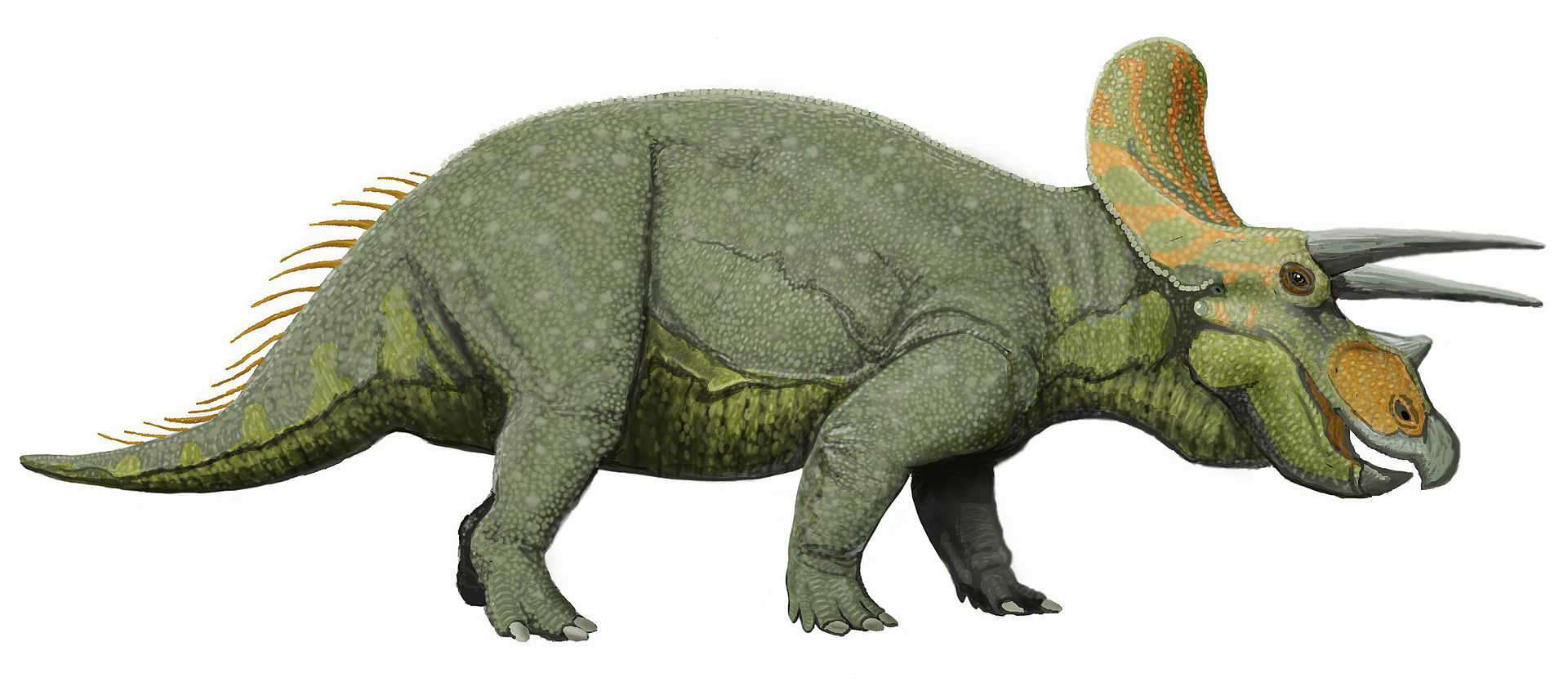We're open daily! View holiday hours
Science News
Dinosaurs' Bad Luck
July 30, 2014
by Molly Michelson

Timing is everything.
Take the asteroid that hit Earth 66 million years ago. Suppose it happened five million years earlier—or five million years later. According to Richard Butler, of the University of Birmingham, the planet today would be a very different place: “…the dinosaurs would probably still be here, and we very probably would not.”
Wait. What?
A study published this week by Butler and his colleagues determined that dinosaurs might have survived the asteroid strike that wiped them out if it had taken place slightly earlier or later in history.
A few million years before a 10-kilometer-wide asteroid struck what is now Mexico, Earth was experiencing environmental upheaval—including extensive volcanic activity, changing sea levels, and varying temperatures.
In addition, as the Academy’s Peter Roopnarine and colleagues modeled two years ago, the sizable dinosaur populations showed little diversity among the species. This probably resulted from changes in the climate and environment. It wasn’t deadly for dinosaurs as a whole, but the ecosystems were a bit more vulnerable.
The impact, however, would have caused tsunamis, earthquakes, wildfires, sudden temperature swings, and other significant environmental changes. Even though most species would have survived the impact itself, these changes proved catastrophic: as food chains collapsed, the dinosaur kingdom got wiped out, one species after another.
Researchers suggest that if the asteroid had struck a few million years earlier, when the range of dinosaur species was more diverse and food chains were more robust, or later, when new species had time to evolve, then they very likely would have survived—never giving our early mammal ancestors a chance to thrive.
“The dinosaurs were victims of colossal bad luck,” says study author Steve Brusatte, of the University of Edinburgh. “Not only did a giant asteroid strike, but it happened at the worst possible time, when their ecosystems were vulnerable.”
The study is published in Biological Reviews.
Image: /Wikipedia